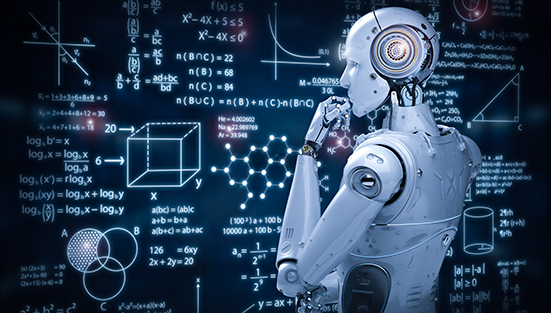Artificial Intelligence (AI) is a branch of computer science that aims to create machines that can perform tasks that typically require human intelligence. It involves the development of algorithms and systems that can perform tasks such as reasoning, problem solving, perception, and learning. AI is a rapidly evolving field that has the potential to transform many industries and revolutionize the way we live and work.
One of the key applications of AI is machine learning, which involves training algorithms on large datasets to make predictions or decisions based on the data. For example, machine learning algorithms can be used to predict which customers are most likely to purchase a product, or to diagnose medical conditions based on a patient’s symptoms. These algorithms can also be used to perform tasks such as image recognition and natural language processing, which are becoming increasingly important as the amount of data being generated continues to grow.
Another area of AI that is rapidly growing is robotics. Robotics involves the development of machines that can interact with their environment and perform physical tasks. AI is being used to develop robots that can perform tasks such as manufacturing, inspection, and maintenance, which are typically performed by humans. Robotics is also being used in the development of autonomous vehicles, which have the potential to revolutionize the transportation industry and make transportation safer, more efficient, and more accessible.
AI is also being used to develop intelligent virtual assistants, which can perform tasks such as scheduling appointments, answering questions, and providing information. These virtual assistants are becoming increasingly sophisticated and are being used in a growing number of industries, including healthcare, finance, and retail.
One of the key benefits of AI is its ability to automate many tasks that are currently performed by humans, freeing up people to focus on more complex and creative tasks. AI is also capable of performing tasks more efficiently and accurately than humans, which can lead to cost savings and improved productivity in many industries.
However, there are also concerns about the impact of AI on employment. As AI continues to evolve, it is likely that many jobs that are currently performed by humans will become automated, leading to job losses in some industries. Additionally, there are concerns about the ethical implications of AI, such as the potential for AI systems to perpetuate bias and discrimination, and the responsibility of AI developers to ensure that their systems are being used ethically and responsibly.
In conclusion, AI is a rapidly evolving field with the potential to revolutionize many industries and transform the way we live and work. While there are concerns about the impact of AI on employment and the ethical implications of AI, there is no doubt that AI will play a significant role in shaping our future. It is important for governments, businesses, and individuals to be aware of the potential benefits and risks associated with AI and to work together to ensure that AI is developed and used in a responsible and ethical manner.






Hi, this is a comment.
To get started with moderating, editing, and deleting comments, please visit the Comments screen in the dashboard.
Commenter avatars come from Gravatar.